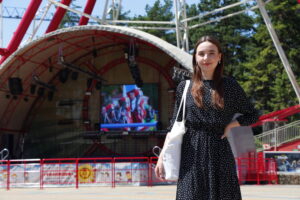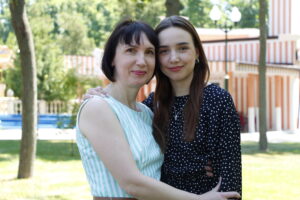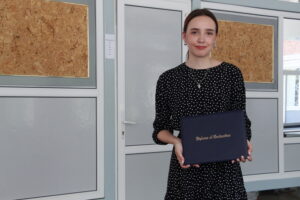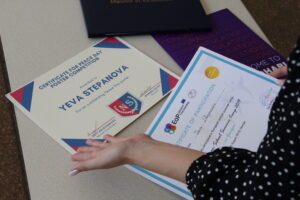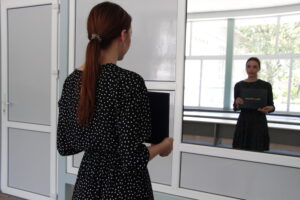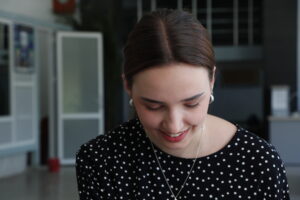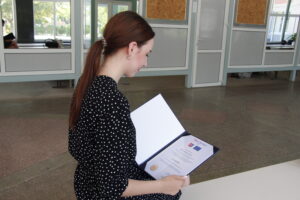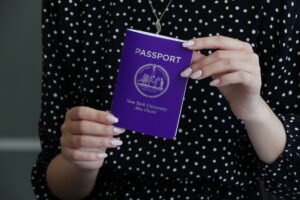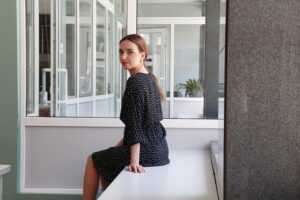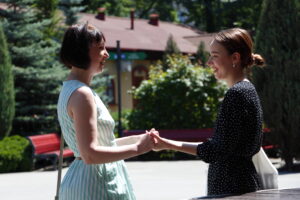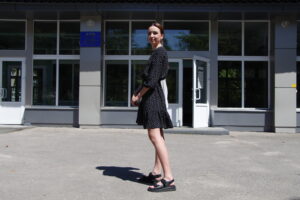
Making the most of every opportunity: how a high school student from Kharkiv made her dream of studying abroad come true
Yeva studied at one of the best secondary schools in Kharkiv. Her focus was mathematics. Ever since she was a child, Yeva had dreamed of studying abroad. That’s why Yeva started learning German and taking part in academic competitions when she was in fifth grade. During her final year at school, she won third place in an international contest at the Junior Academy of Sciences of Ukraine. This earned her ten additional points in the External Independent Testing (examinations for the admission to universities in Ukraine). She graduated with a silver medal, still yearning to study at a foreign university.
“I changed my field of interest, but never my goal. That’s why at the end of eleventh grade I knew I had to enrol in an educational programme that would help me get into a university abroad,” said Yeva.
At first, Yeva thought her dream would never come true. Studying abroad is expensive, and her parents were not happy with her going to a foreign country on her own. One summer, while at camp, her friends told her about the Eastern Partnership European School in Georgia, and she decided to take a chance. Enrolling for the school programme did not take much effort.
Filling in an application form and the selection process
Yeva’s basic knowledge of English helped her to fill in the application form to be admitted to the Eastern Partnership European School in Georgia. She had to inform the school about her grades and her health. She got an email stating that she received a full scholarship from the European Union to study at the school in Georgia while she was taking the External Independent Testing exam in Mathematics in Ukraine. The girl recalls how she felt relieved that her dream of studying abroad would come true, although she still needed to discuss the matter with her parents. They didn’t know their daughter had applied, gone to Kyiv for the exam and had been selected to study at the school.
“I told my parents that I was going to Kyiv to look at prospective universities, but in fact I went there to take the second stage test of the selection process for the Eastern Partnership School. I was anticipating how I would explain what kind of school it is and why I’d like to study there to my parents,” the girl recalls. “It was a wonderful coincidence; I couldn’t believe it was real!”
Trust opens new opportunities
It was difficult for Yeva to convince her parents to let her go to Tbilisi for two years. Svitlana Stepanova, the girl’s mother, learned about the Eastern Partnership European School from her daughter for the first time and was categorically against it. She said: “You are not eighteen and I will not sign any papers.” But Yeva didn’t give up and persuaded her mother to think about it.
“I thought that studying at this school after already finishing her education was irrational. Yeva, however, argued her case. I asked for some time to familiarise myself with the subject. Later, I found some information about the school’s education system. I also talked with a representative of a company dealing with drawing up and processing documents for children travelling abroad. She confirmed that the school really existed, and that she had heard of it herself. After that I felt more relaxed,” said Yeva’s mother.
According to Svitlana Stepanova, Georgia is a beautiful country. However, its mentality, customs, and cuisine are very different from Ukraine. Yeva’s father supported the girl and helped to convince her mother.
“I weighed the pros and cons and realised that this is a great opportunity for Yeva. Her father supported her from the very beginning, saying: ‘She knows better than us. If she wants to study there, we should let her,’” recalls Svitlana.
Studying at the school in Georgia
Studying at the school went very well – Yeva’s mother need not have worried. Yeva thought she would travel a lot across Georgia while studying at the school and learn its culture and history. Unfortunately, the COVID-19 pandemic interfered. Yeva said that studying in Georgia was fundamentally different from Ukraine because of the heavy workload. She sometimes had to study into the night. All students who had received scholarships had clear future goals. That’s why Yeva devoted all her time to studying.
“I like the English language and the American university education system. I understood that I needed to get high grades to be admitted to an American university. This motivated me to get the most out of the opportunities offered by the school. Other students were also extremely motivated. I was always surrounded by people who did more than they were supposed to do. This inspired me to perform well,” said Yeva Stepanova.
How did Yeva benefit from the School in Georgia?
The Eastern Partnership European School programme helped Yeva to improve her English and allowed her academic potential to flourish. The school offers six subjects to study (instead of the twelve to which Yeva was accustomed), which helped her focus better on each of her chosen subjects’ programmes.
“I never thought that economics would be one of my favourite subjects. I have discovered a lot of new knowledge areas and skills. For example, I had never written critical essays before studying at this school. This was an interesting and useful opportunity, having never done such things in Ukraine,” said the girl.
In Georgia, Yeva familiarised herself with the types of assessments and the education system used at US universities. She also received an IB Diploma that is recognised and highly valued by US higher education institutions.
Yeva started being interested in environmental science at the end of tenth grade at her secondary school in Ukraine and took part in an exchange programme to study in Germany. The programme was focused on environmental protection in Kharkiv and Nuremberg. That’s when Yeva realised that she would like to develop her skills in this area. However, she recognised that Ukrainian universities didn’t offer a course that would provide “cutting-edge knowledge and opportunities to easily pursue an occupation and contribute to environmental protection”. The school in Georgia offered up-to-date knowledge and opportunities to progress.
Studying at the school helped Yeva receive a full scholarship to study at the prestigious New York University Abu Dhabi in the UAE. This made her family very happy. She will receive an internationally recognised diploma in environmental studies.
Entering the New York University Abu Dhabi
Having been admitted to a United Arab Emirates (UAE) university, Yeva is now planning what she will do once she is in Abu Dhabi. She would like to take a course devoted to the traditions and customs of the country and learn about its history. “People can adapt well and that’s why I’m not afraid,” said Yeva. She is sure that learning about a completely different culture can broaden one’s mind. Yeva believes that people shouldn’t be afraid and should look for new opportunities for a better education.
According to Yeva, pupils should start looking for new opportunities online as early as eighth grade. They should also attend a variety of lectures and events related to education and meet different people, who can tell them about the various courses available.
Yeva’s mother agrees with her daughter. She says that parents should support their children as much as possible if they want to study abroad. While they should understand that their children will be far from home and will live in a different cultural environment, it is important that they develop their knowledge according to the requirements of foreign universities if they wish to study abroad.
With the International Baccalaureate Diploma students can pursue careers in areas such as economics, biochemical engineering, physics, social sciences, arts and culture, communications and media, international relations, medicine, law, liberal arts, and computer sciences.
Another 40 students are set to join the school in the 2021-2023 academic years after completing the recruitment process through applications, written assessments, and interviews.
The Eastern Partnership European School programme encourages cooperation, multi-cultural understanding, tolerance, and fundamental values. This EU initiative offers high quality education to high school students from Armenia, Azerbaijan, Belarus, Georgia, the Republic of Moldova and Ukraine through an IB Diploma programme. The school graduates can receive scholarships and pursue their higher education studies at the best universities around the world. The project is funded by the European Union.
Author: Alina Turyshyn
MOST READ
SEE ALSO

‘The Kremlin has entered the chat’: how to protect your personal data on Telegram and avoid the bait of propaganda

No, time is not on Russia‘s side
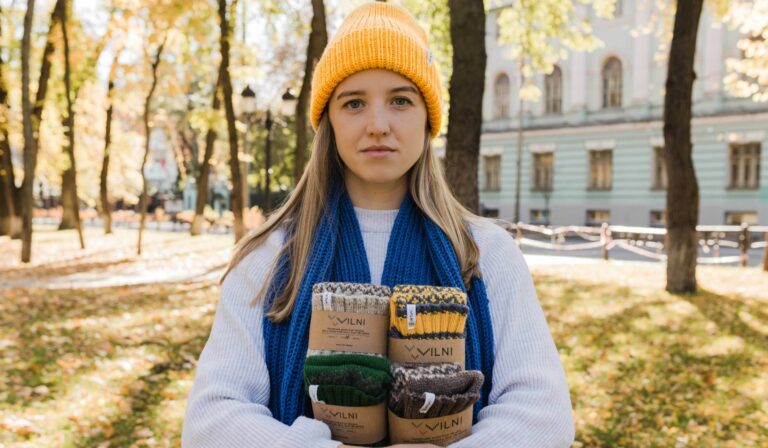
Socks for Peace: how the Vilni project is supporting internally displaced women in Ukraine
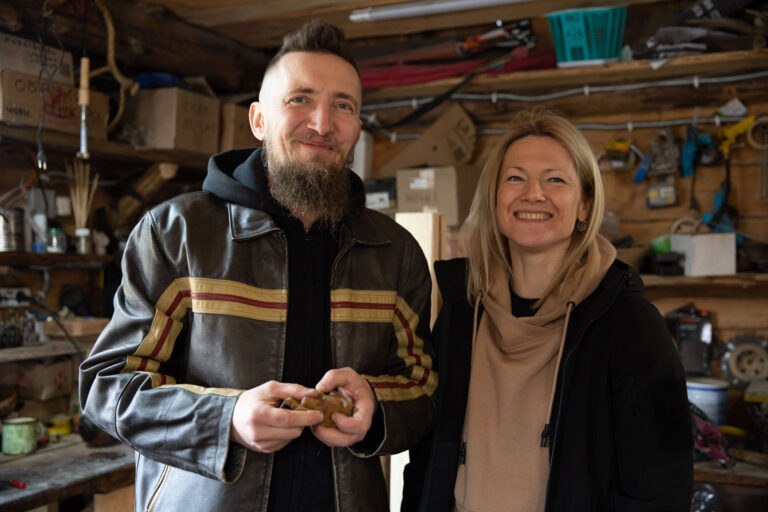
Celebrating traditional Ukrainian cultural identity in Rivne
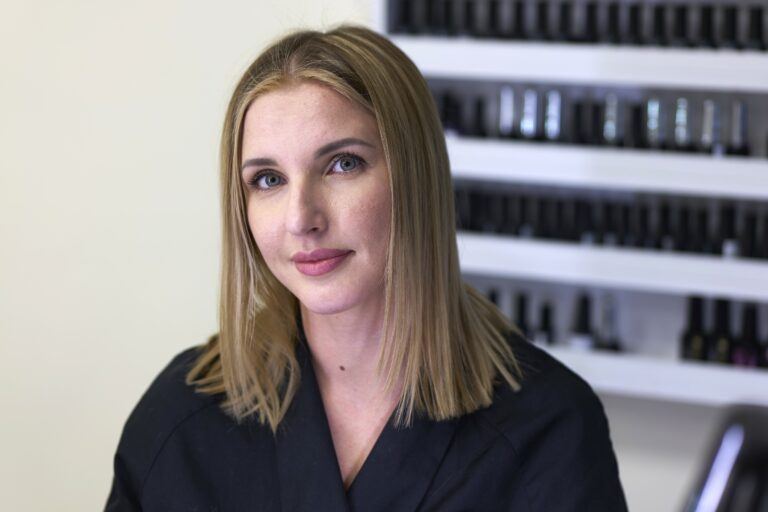
Natalia wanted her child to escape the war: how a single mother set up a successful business in Lithuania
More campaign pages:
Interested in the latest news and opportunities?
This website is managed by the EU-funded Regional Communication Programme for the Eastern Neighbourhood ('EU NEIGHBOURS east’), which complements and supports the communication of the Delegations of the European Union in the Eastern partner countries, and works under the guidance of the European Commission’s Directorate-General for Neighbourhood Policy and Enlargement Negotiations, and the European External Action Service. EU NEIGHBOURS east is implemented by a GOPA PACE-led consortium. It is part of the larger Neighbourhood Communication Programme (2020-2024) for the EU's Eastern and Southern Neighbourhood, which also includes 'EU NEIGHBOURS south’ project that runs the EU Neighbours portal.

The information on this site is subject to a Disclaimer and Protection of personal data. © European Union,
